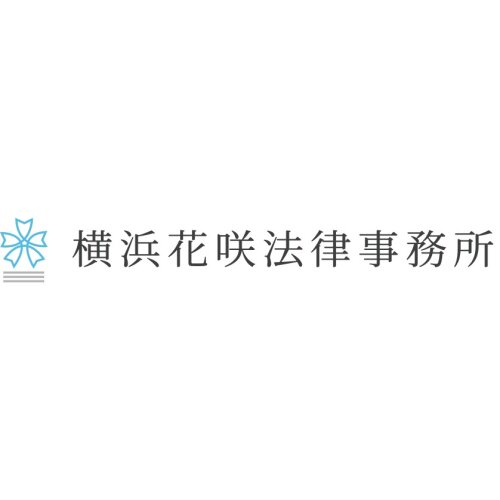Best Antitrust Lawyers in Yokohama
Share your needs with us, get contacted by law firms.
Free. Takes 2 min.
List of the best lawyers in Yokohama, Japan
About Antitrust Law in Yokohama, Japan
Antitrust laws in Japan, including the city of Yokohama, are primarily governed by the Japan Fair Trade Commission (JFTC), who enforces the Anti-Monopoly Act (AMA). The AMA aims to promote fair and free competition, prevent monopolization, and regulate business practices that would impede a competitive economy. It applies to all businesses operating within Japan, and both domestic and international entities engaging in commercial activities that could influence the Japanese market. These laws are designed to protect consumers, competitors, and the overall efficiency of the economy.
Why You May Need a Lawyer
Individuals and corporations may require legal help in antitrust matters for various reasons. Complexities can arise when dealing with mergers and acquisitions that may lead to a high market concentration. Companies also need to ensure compliance with the AMA when establishing pricing strategies, creating distribution agreements, or participating in joint ventures. Furthermore, businesses accused of unfair competition practices, such as bid-rigging, price-fixing, or other activities considered as restraint of trade under the AMA, will seek legal assistance. Legal professionals adequately provide guidance, represent entities in antitrust investigations, and construct defensive strategies against alleged violations.
Local Laws Overview
The Anti-Monopoly Act contains provisions to prevent private monopolization, unreasonable restraint of trade, and unfair trade practices. Private monopolization includes activities restricting competition by controlling prices or quantities of goods and services. Restraint of trade involves illegal agreements between competitors, such as cartels. Unfair trade practices cover a broader range of activities such as tying, discriminatory dealings, and interference with a competitor's transactions. Any business activities within or affecting Yokohama, Japan would be subject to these regulations. Moreover, the JFTC's guidelines and decisions establish essential precedents that provide further clarity on the enforcement of the AMA.
Frequently Asked Questions
What constitutes an antitrust violation in Yokohama?
Violations include practices that lead to private monopolization, unreasonable restraints of trade such as cartels and bid-rigging, and various types of unfair trade practices.
Can international companies be prosecuted under Japanese antitrust law?
Yes, international companies engaging in activities that affect the Japanese market may be subject to the AMA and can face penalties for violations.
What are the potential penalties for antitrust violations in Japan?
Penalties can range from administrative fines to criminal sanctions, including imprisonment for individuals or corporate executives responsible for the violation.
What is the statute of limitations for antitrust violations in Japan?
Generally, the statute of limitations for filing a claim regarding antitrust violations is three years from the time the injured party becomes aware of the damage and the liable party, or in any case, five years from the time the violation occurred.
How do I report an antitrust violation?
Reports can be filed with the JFTC through a formal complaint or submission of information concerning anticompetitive practices.
What kind of evidence is required to prove an antitrust violation?
Evidence may include documentation of agreements, communication records, transaction data, and testimony demonstrating the anticompetitive behavior.
Can individuals sue for damages caused by antitrust violations?
Yes, individuals and corporations can sue for damages caused by antitrust violations under Japanese civil law.
How does the JFTC investigate alleged antitrust activities?
The JFTC employs various investigative methods, including raids (dawn raids), document requests, and interviews with relevant parties.
Can legal actions be taken against a company for alleged but unproven antitrust behavior?
While accusation alone does not establish guilt, companies may face an investigation and will need legal representation to navigate such scenarios.
Do Yokohama businesses need to comply with antitrust laws of other countries?
Businesses based in Yokohama operating internationally may be subject to the antitrust laws of other jurisdictions where they conduct business activities.
Additional Resources
Those seeking more information or assistance can refer to the Japan Fair Trade Commission (JFTC) website for guidelines, policies, and contact information. Additionally, local legal associations and various online platforms provide databases of lawyers specializing in antitrust law who practice in Yokohama.
Next Steps
If you require legal assistance related to antitrust issues in Yokohama, your next step would be to consult with a lawyer who specializes in antitrust laws. It is advisable to engage a professional with a proven track record who can evaluate the specifics of your situation and advise on the best course of action. Be prepared to provide detailed information regarding your case, including any relevant documents and correspondence. Your lawyer will assist you with understanding the complexities of the law, represent your interests, and guide you through investigations or legal proceedings.
Lawzana helps you find the best lawyers and law firms in Yokohama through a curated and pre-screened list of qualified legal professionals. Our platform offers rankings and detailed profiles of attorneys and law firms, allowing you to compare based on practice areas, including Antitrust, experience, and client feedback.
Each profile includes a description of the firm's areas of practice, client reviews, team members and partners, year of establishment, spoken languages, office locations, contact information, social media presence, and any published articles or resources. Most firms on our platform speak English and are experienced in both local and international legal matters.
Get a quote from top-rated law firms in Yokohama, Japan — quickly, securely, and without unnecessary hassle.
Disclaimer:
The information provided on this page is for general informational purposes only and does not constitute legal advice. While we strive to ensure the accuracy and relevance of the content, legal information may change over time, and interpretations of the law can vary. You should always consult with a qualified legal professional for advice specific to your situation.
We disclaim all liability for actions taken or not taken based on the content of this page. If you believe any information is incorrect or outdated, please contact us, and we will review and update it where appropriate.









